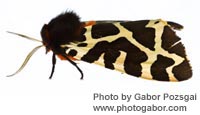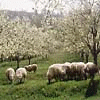 This page has been mothballed.
This page has been mothballed.
It is no longer being updated but we've left it here for reference.
 |
 |
 |
 |
 |
 |
 |
 |
A Workshop in Bulgaria: Options for Local Biodiversity Management in Protected Areas
8 - 10 February, 2002
Bulgarian Translation
 Adobe Acrobat version 101K
bytes.
Adobe Acrobat version 101K
bytes.
Background
This workshop is funded by the Macaulay Land Use Research Institute Development Trust. The Macaulay Land Use Research Institute is located in Aberdeen, Scotland. This is a multidisciplinary-based research institute, carrying out integrated study of the physical, environmental, and social consequences of land use.
Among the scientists at the Macaulay Land Use Research Institute are ecologists, socio-economists and grazing specialists engaged in the study of the nature conservation, economic and community aims of protected areas. The Institute also has contacts with scientists and practitioners involved in protected area projects and management across the UK and Europe. This workshop aims to facilitate knowledge exchange between these scientists and practitioners with the staff managing protected areas in Bulgaria.
Agenda
The main agenda of the workshop is to address local funding opportunities in implementing innovative sustainable nature conservation projects in protected areas in Bulgaria. This agenda arose from a discussion among the staff of protected areas in Bulgaria, in collaboration with the Bulgarian Ministry of Agriculture and Forests. The focus is predominantly a local view.
The main agenda is split into three issues:
- Economic development opportunities arising from biodiversity management. Projects world-wide have demonstrated that various enterprises, including sustainable tourism, sustainable forestry, local craft industry and eco-farming, can contribute to the natural and cultural heritage of protected areas, facilitating the self-funding of conservation. In addition, protected area authorities themselves can generate funding for conservation through a variety of mechanisms such as entrance/ parking fees, and marketing activities such as publications, visitor centres and museums.
- The process of formal and informal institution building for the delivery of biodiversity management benefits. The establishment of these enterprises and initiatives cannot occur spontaneously, but requires the co-operation of all local stakeholders. This exchange is essential for the co-ordination of activities, the pooling of ideas and resources, as well as the reconciliation of different interests. In addition, co-operation can lead directly to fund-raising through the establishment of commercial co-operatives. Local institution building is an essential ingredient in involving stakeholders, including private agents. Such involvement is especially relevant in the case of some East European countries, where land restitution has increased private land ownership in protected areas (eg some Bulgarian Nature Parks). These agents may have no skills in conservation and land management, and in some cases no interest. As a result, conflict management and co-operation with local people is an important issue.
- External funding: potential sources for protected area managers. Inevitably the establishment of these enterprises and institutions involves some costs which cannot be met locally or centrally. Examples of such costs include maintenance and construction costs, capacity building and staff training. One approach to fulfilling these funding needs is to apply for external assistance. There is ample evidence of a willingness to pay among external funders. Sources of funding and means of accessing them are investigated.
Approach
These issues in protected area management will be considered especially through the case-study of Bulgaria, where the workshop will be held.
The approach is to use a combination of presentations on theoretical aspects of and practical case-study experience in protected area management around the world, followed by a task-based discussion. Translators will be present at the workshop to facilitate discussion.
The Programme
The workshop will take place over three days at the Vitosha Nature Park near Sofia, from 8th - 10th February, 2002.
There will be an orientation session on the evening of Thursday, 7th February.
The workshop will commence 09.00, Friday 8th February. This first day will comprise an introduction on the work of the individual ministries, and presentations on the following: linkages between biodiversity management and economic development; conflict resolution through institution building; biodiversity action plans as an example of institutions in practice; and external funding opportunities.
The morning of the second day, Saturday 9th February, will comprise case-study experience in protected area management in Zimbabwe, Ukraine and Slovenia. In the afternoon, there will be a task-based discussion which will focus on the establishment of priority projects in Bulgarian protected areas, as identified by relevant staff.
The third, brief, day, Sunday 10th February, will comprise a synopsis of the workshop and a plan of forward action. The workshop will finish early, at about 10.30, due to the constraint of outward flights.
This workshop has been organised by Gerard Wynn, could you please contact our events team with comments and suggestions.

